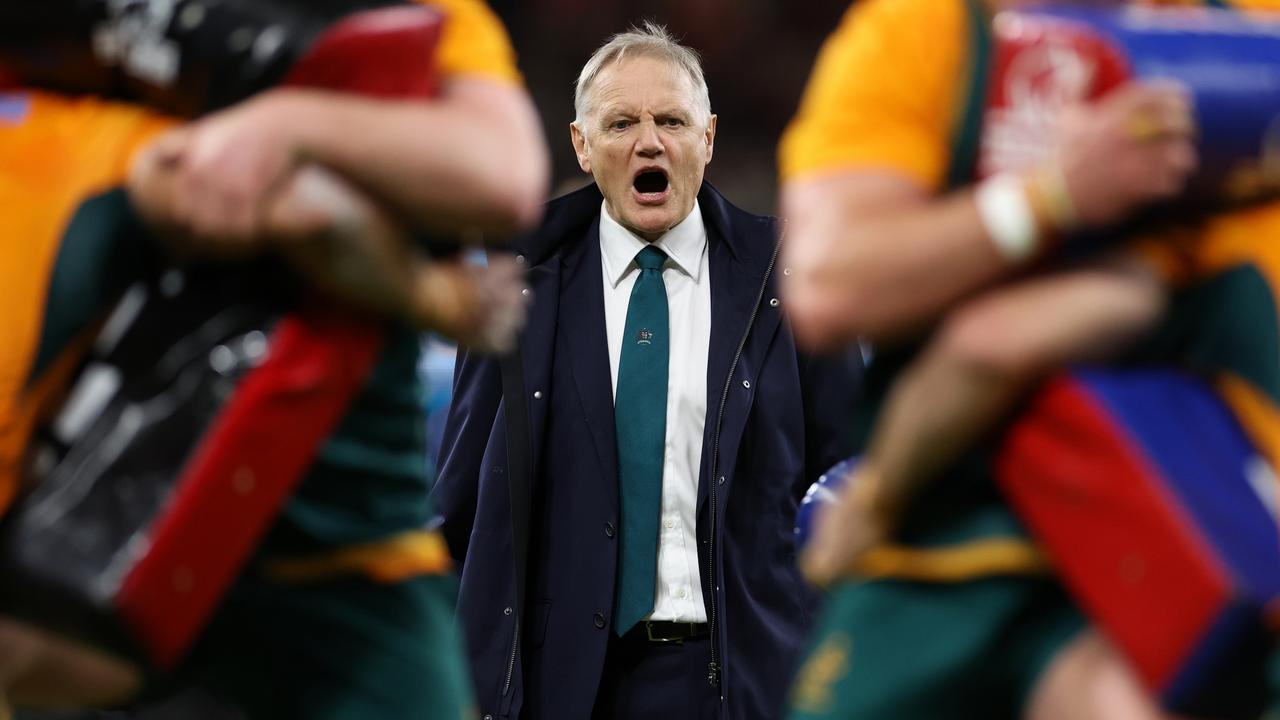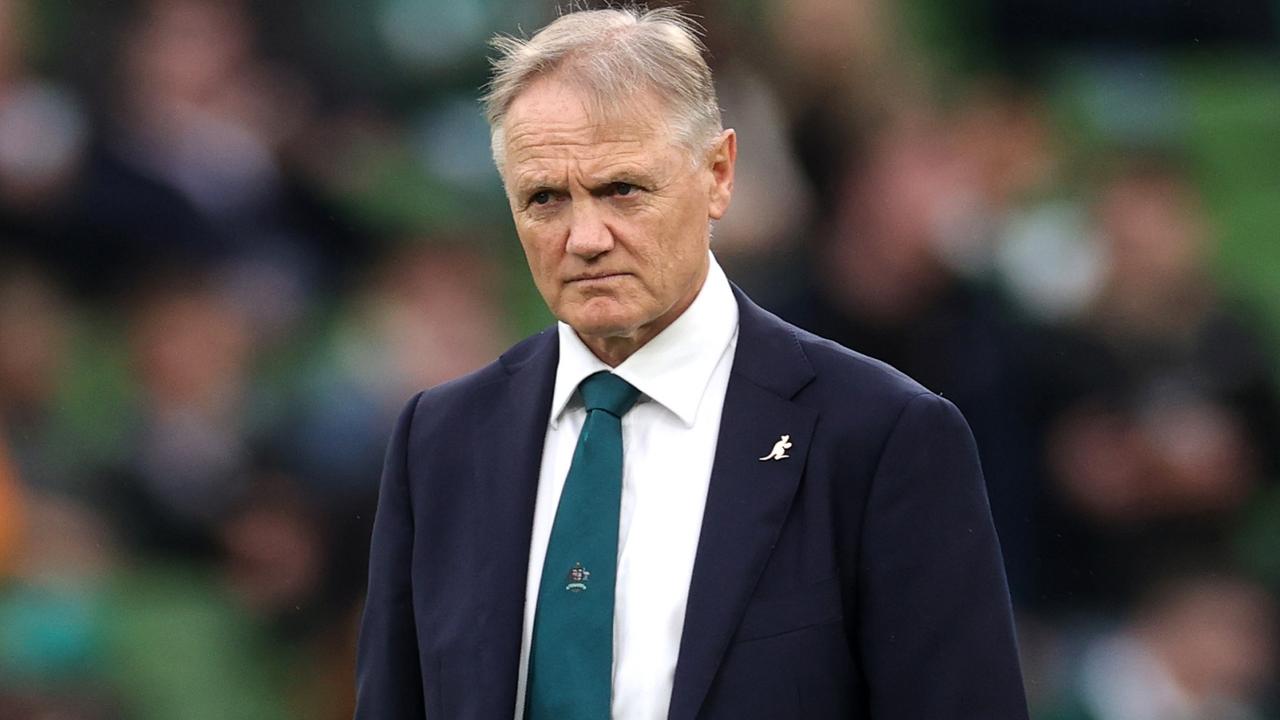‘Like living in a dictatorship’: Former England scrum-half Danny Care reveals how Eddie Jones ruled English rugby and how no one could stop it
Danny Care talks to Owen Slot about his new book, which reveals how former his England head coach Eddie Jones belittled his squad, making players fear that one wrong move could signal the end of their international careers.
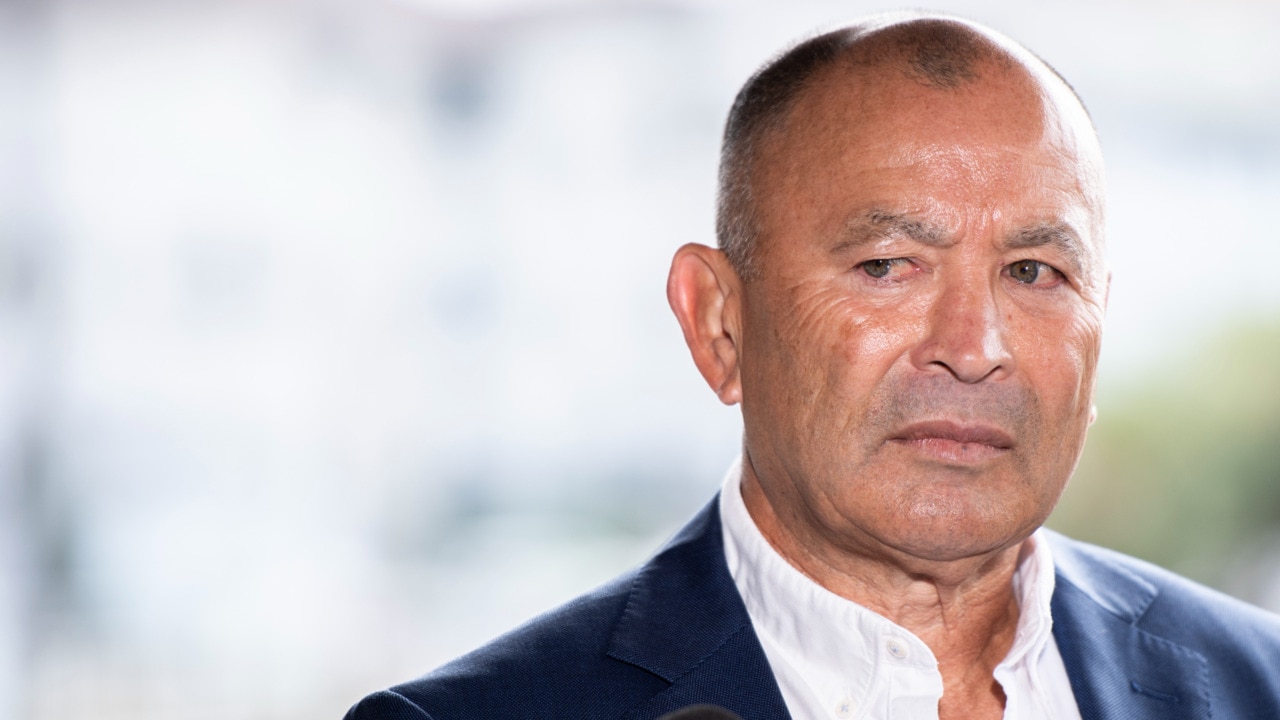
Rugby
Don't miss out on the headlines from Rugby. Followed categories will be added to My News.
DANNY CARE is by no means the first athlete to use his autobiography to make headlines and then hope that those headlines help to sell his book. Sometimes these have been hit-and-run jobs: slag off a couple of big names in print and then duck while the publicity storm brews. On other occasions, the athlete has regretted the noise and attempted to rein back on the controversy caused.
Care is neither of these. His book, Everything Happens for a Reason, delivers an excoriation of the Eddie Jones regime that is by far the most devastating revelation that any insider has presented of Jones’s seven years at the helm. There have been allegations levelled at Jones from the outside before, but nothing like this from within. And Care stands by absolutely every word.
He has an unrivalled view of it all too. He won 101 caps, played under every England coach from Martin Johnson in 2008 to his retirement from Steve Borthwick’s team earlier this year and still, at the age of 37, wears the No. 9 jersey for Harlequins. So this is a critique delivered with real perspective.
The astonishing extracts, which have been serialised in The Times over the past two days, lay bare the culture of fear that ruled within Jones’s camp, when, writes Care, “everyone was bloody terrified of him”. This is a long-running theme.
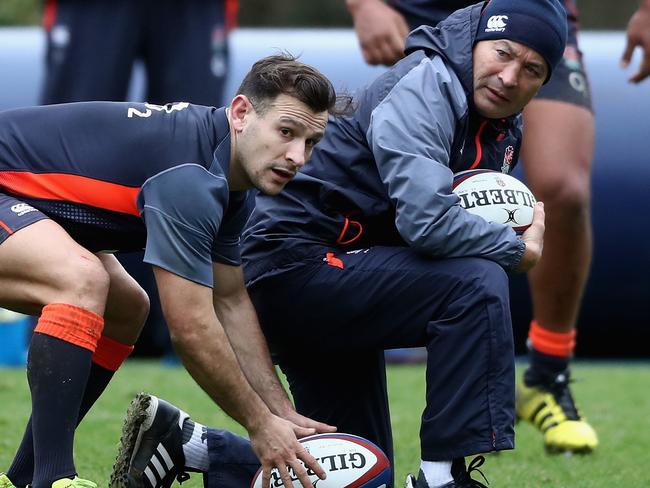
“Remember what it felt like when someone was being bullied at school and you were just glad it wasn’t you?” he writes. “That was the vibe.”
He describes the England camp as “like living in a dictatorship, under a despot who disappeared people”.
Given the opportunity, here, to interview Care about the book and about the Jones regime, there is one question that I keep on asking in slightly different forms which is this: how was it all allowed to happen? This, for me, is almost as astonishing as the revelations themselves.
You have, here, the best players in the country who are, by definition, ambitious and fiercely determined, a group populated mainly by strong characters and alpha males. How can they have been universally cowed by Jones?
“When I look back at it,” says Care, “that’s the sad thing. How can an environment that should be the best of the best, how can it be like that, when everyone is so scared of the guy at the top that you can’t have a conversation with him? Any day you look at him wrong or someone says the wrong thing, and he could just blow.”
The prime reason that it could exist, explains Care, was Jones’s attitude that players were “dispensable”. “He was so powerful because he knew he had all these lads at his disposal, so many good players that he could get rid of you. It was a luxury he had.”
Care has his own example of where a career could go if you said the wrong thing. In 2018, after three years of playing in Jones’s teams, he was dropped, a piece of news delivered in a three-second voicemail. Care then went to ask Jones why, to state his case. The result was that he then wasn’t picked by Jones for another four years.
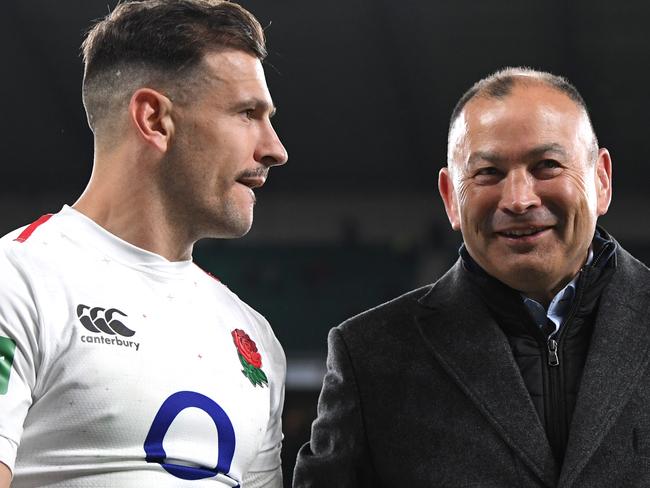
Care is “100 per cent” convinced that had he not had that conversation – “if I’d have just gone, ‘Sorry Eddie, thanks a lot, mate,’ and walked” – he would have been back within a few months.
“We were all living in that fear,” he says, “that you say the one wrong thing and your whole career could be determined. If, after three games, you don’t like something and say so to Eddie, you could have gone on to win 100 caps, but you’d only ever win three.
“There’d be times where a young lad would come to one of us older lads, and be like, ‘Eddie’s saying this and that to me, what should I do?’ And the advice would be, ‘That’s the way it is, just find a way to keep his attention off you.’ You almost don’t want him to speak to you in the day, because you don’t know which way it’s going to go, you almost just want it to go under the radar, which then breeds a selfish mentality that you’re just looking out for yourself.
“We weren’t suffering in silence. We’d be like, ‘Who’s getting chopped today (Tuesday)?’ Or if he’s in a bad mood, everyone would be like, ‘Right, head down, eat your breakfast, go and train, get back to your room.’ You know, we did live in fear, which is mental. You have alpha males, like Hask [James Haskell], three times his height, genuinely petrified of the power that man had. Ultimately he could define your career.”
Worse than his treatment of the players, Care says, was the way Jones treated his staff. Care says: “I like to think if I had my time again with him, I would have spoken up more,” yet he knows that would have been counter-productive.
“The way he belittled some of them [the staff] in front of the lads … if you’d have stood up and gone ‘Eddie, no, that’s not right,’ then you’d be packing your bags before the end of the meeting. That’s why it was so dog-eat-dog, so toxic, that again, selfishly, the lads were like, ‘I’m just going to stay in the room, find a way to stay in the room.’ ”
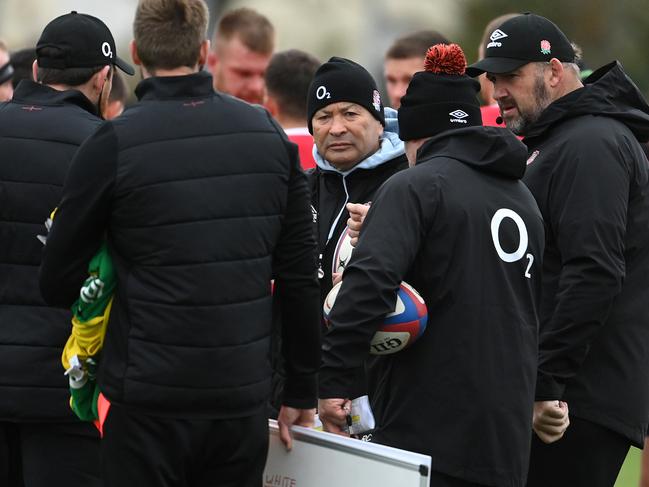
But here, again, is where it is so hard to understand. This is a group of players trying to win grand slams and World Cups, yet the culture Care describes is clearly counter-productive to performance.
Care’s answer is balanced. Jones’s methods did work in the short term, he says, “because maybe in a way you found something more than you would have found in a nicer environment”. In 2016, England won a grand slam.
Yet he then recalls the 2018 Six Nations, when Jones was training the players so hard during the week that they’d be fatigued for the games at the weekend, and he and Dylan Hartley decided to broach the subject. “We were like, surely as senior players we can go in there and say, ‘Mate, we think we’re overcooking this slightly, we maybe need to feel a bit better for the weekend.’ So we tried, and we got fully shot down, and, ‘I’m the boss, you’re the players, listen to me,’ and then we obviously got battered at the weekend. And then he made training even harder.”
Care says that a feeling developed among the players that “hopefully he’d be gone” after the 2019 World Cup. “The boys were like, normally it goes in cycles, he normally doesn’t last that long in environments. He might get the boot after the World Cup. But then they went and nearly won the whole thing, so then you’re like, OK, he’s staying for a bit longer.”
One feeling that remains from reading Care’s book is how this whole period was such a waste of an unusually highly talented playing group. He doesn’t just pin that on Jones, he brings in Stuart Lancaster and the previous regime.
Last week, Care was hosting a corporate lunch with Conrad Smith, the retired All Black, and reflecting on the 2015 World Cup, which, he believes, England had the personnel to win. They agreed that “we were definitely a top-four team”. Yet Smith became a World Cup winner and “we ended up being the worst team in history. How sad is that?”
What is so galling is Care’s view that creating the right environment is the No. 1 essential element yet Lancaster and Jones both got it wrong.
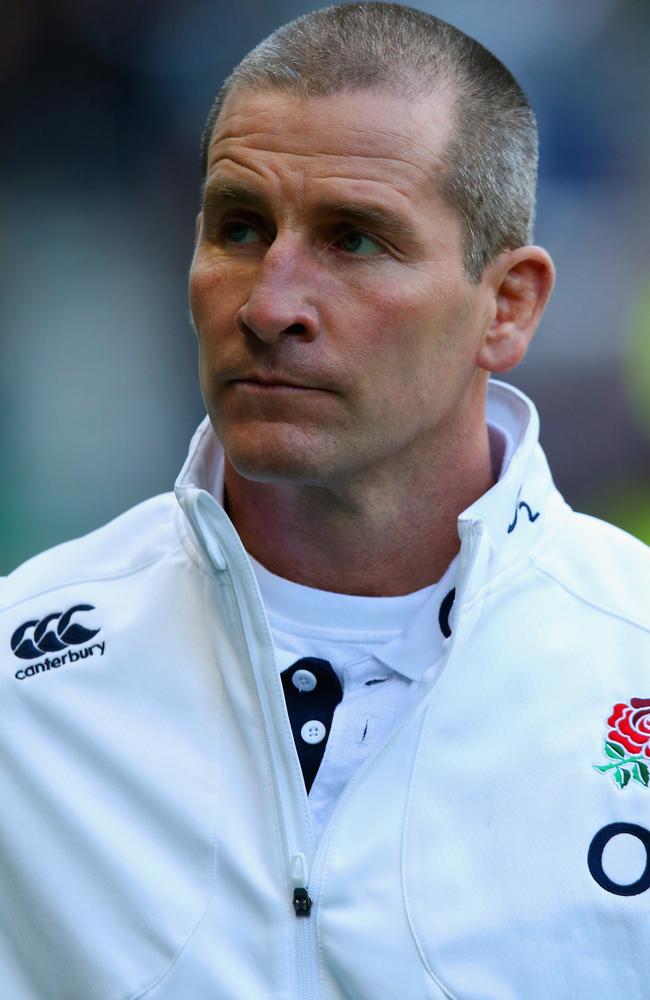
Care says: “If I ever got into a position like that of a director of rugby or a CEO of a business, you’d create a great atmosphere where people felt comfortable and happy and had fun and worked hard but always felt protected.”
He says that, in his career, there was “no better environment” than the one Dean Richards created at Harlequins. Conor O’Shea’s Quins was exceptional too. Yet the two England head coaches that he spent longest playing for were the ones who got it so wrong.
Care says: “I hope it comes across in the book that I owe Lanny [Lancaster] an awful lot and he was great for me.” Yes it does.
The 2015 World Cup, however, just seems such a lost opportunity. Care describes Lancaster as a coach promoted to the top job “too soon” who was overwhelmed by the pressure and who kept his squad too cooped up at their Pennyhill Park base.
“I’m not surprised that the performances were the way they were,” he says, “because you had a team that was stifled. We’d laugh, we’d play cards at night and we’d be like, ‘What the f*** are we doing?’ Another night where we’re just sat in, playing cards, eating biscuits, watching football on the telly in the same room that all of us would always come to. We’re like living the dream!”
Some dream, though nothing within the Lancaster revelations compares with what Care tells us about Jones. Maybe worst of all is Jones telling Ben Earl that the reason that he wasn’t performing well was “because he had been raised wrong”.
As Care says: “You can’t start questioning people’s upbringing, how their parents are raising them.” Of course you can’t. So you wonder what triggered Jones to do so. “I think,” says Care, “it was all down to not working hard enough in a kick-chase or something.”
Astonishing, isn’t it? And yet the England squad remained cowed. Don’t say the wrong thing. Do whatever it takes to stay in the room. That was the reign of Eddie Jones. At least, from within, we now have the truth.
More Coverage
Originally published as ‘Like living in a dictatorship’: Former England scrum-half Danny Care reveals how Eddie Jones ruled English rugby and how no one could stop it



